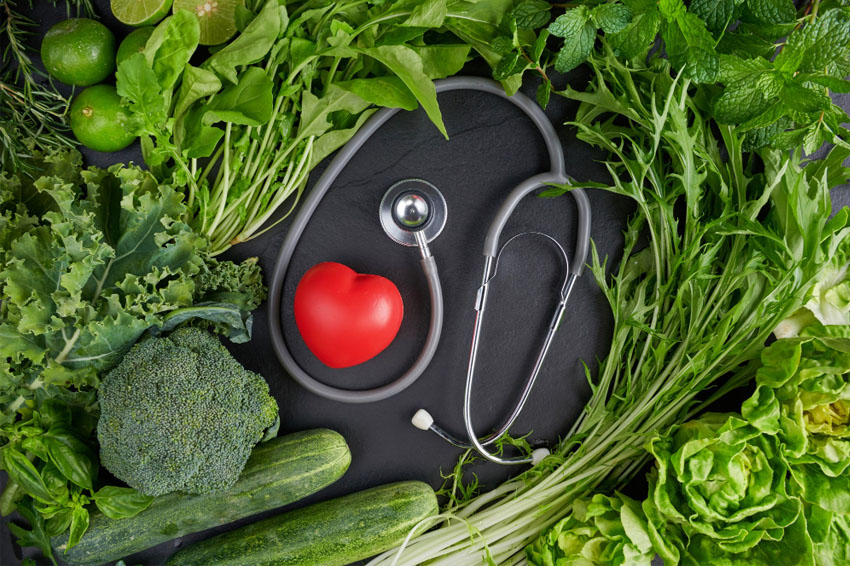The Mediterranean and DASH diets both enhance your heart and general health, according to the studies, yet they are very different from one another. Understand which option is the greatest fit for you.
1. The DASH Diet (Dietary Approach to Stop Hypertension):
The DASH diet was created to assist treat or managing high blood pressure, and if it is rigidly adhered to, blood pressure can be lowered in as little as one week. Low-density lipoprotein (LDL, or “bad”) cholesterol, the kind that can block your arteries and cause a heart attack or stroke, is also reduced by the DASH diet plan, according to studies.
Foods high in potassium, calcium, and magnesium, such as cereals, fruits, vegetables, legumes, nuts, seeds, and dairy products, are the foundation of the DASH diet. It restricts foods high in added sugar, saturated fat, and salt.
The DASH diet permits more lean meat, fish, and poultry, as well as fat-free or low-fat dairy products than the Mediterranean diet does. It is also high in plant-based meals.
Instead of merely using olive oil, the strategy includes fats like mayonnaise, salad dressing, and vegetable oil. A teaspoon of salt has around 2,300 milligrams of sodium, which is the daily sodium limit recommended by the DASH diet.
Another variation limits daily salt intake to 1,500 mg. That is less than the normal daily intake of 3,300 to 4,300 mg of salt for Americans.
The DASH diet has a plan. The amount of calories chosen by members control what and how much they eat each day. The DASH diet doesn’t actually promote weight reduction, but because it promotes portion management, some people do.
Acquiring and maintaining a healthy weight cuts the risk of excessive glucose levels, which damage blood vessels, lowers stress on the heart, and supports to normal range.
Also read: Ketogenic Diet Food List: What You Can and Cannot Eat
2. The MD (Mediterranean Diet):
No one like the Mediterranean diet exists, despite the name (MD). It is a general word for an eating regimen that is popular in nations surrounding the Mediterranean Sea, such as Italy, Crete, and Greece, and is centered on simply cooked dishes.
The MD has been associated with improved heart health in studies, including one around 26,000 women that concluded following the diet for 12 years lowered the risk of cardiovascular disease by 25%.
Grain foods, fruits, vegetables, legumes (beans and lentils), nuts and seeds, and very few, if any, highly processed foods are the foundation of a Mediterranean diet. The major source of additional fat in the MD (Mediterranean diet) is olives, therefore it is not a low-fat diet.
A diet in the Mediterranean style reduces animal foods while including moderate amounts of dairy, eggs, chicken, and fish. Red foods like beef and lamb are scarce, as are processed meats.
Red wine is included in the MD (Mediterranean diet), but only in moderation and with meals. But you don’t have to drink wine to follow the Mediterranean diet.
The Mediterranean diet is heart-healthy since it is full of fiber, low in salt, saturated fat, and added sugar. Despite the lack of calorie monitoring required, this eating pattern may aid in weight management and lower the risk of heart disease, type 2 diabetes, high cholesterol, and high blood pressure.
Also read: 10 Simple Diet Tweaks to Reduce Your Risk of Dementia
Which Diet Is the Healthiest for Your Heart?

The DASH eating plan and the MD both support heart health. Because there are set meal options with the DASH plan, significant dietary modifications may be necessary. Foods must be weighed and measured, at least until you become accustomed to the right portion quantities.
The MD is less strict, but you may need to monitor your intake to avoid gaining weight and losing some or all of the advantages of this plant-based diet.
Choosing fresher alternatives to highly processed foods and eating more whole grains, fruits, vegetables, nuts, seeds, and seafood is always a good choice, regardless of which option you pick. Your heart will be grateful.
Thumbnail Credit: jcomp

Anvi has done Bachelor’s and Master’s in Nutrition and Dietetics. She’s planning to do a Ph.D. in Public Health Nutrition moving forward.







































Leave a Reply